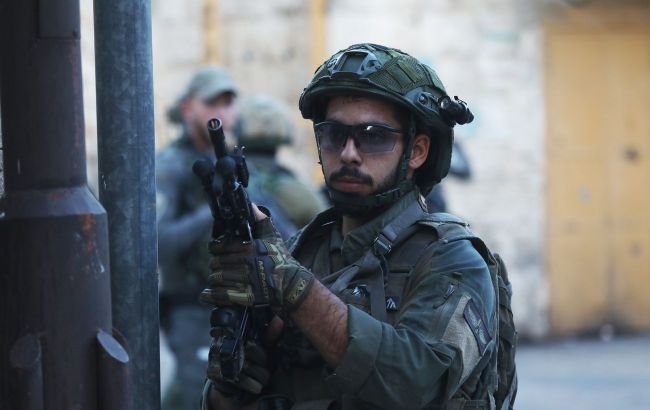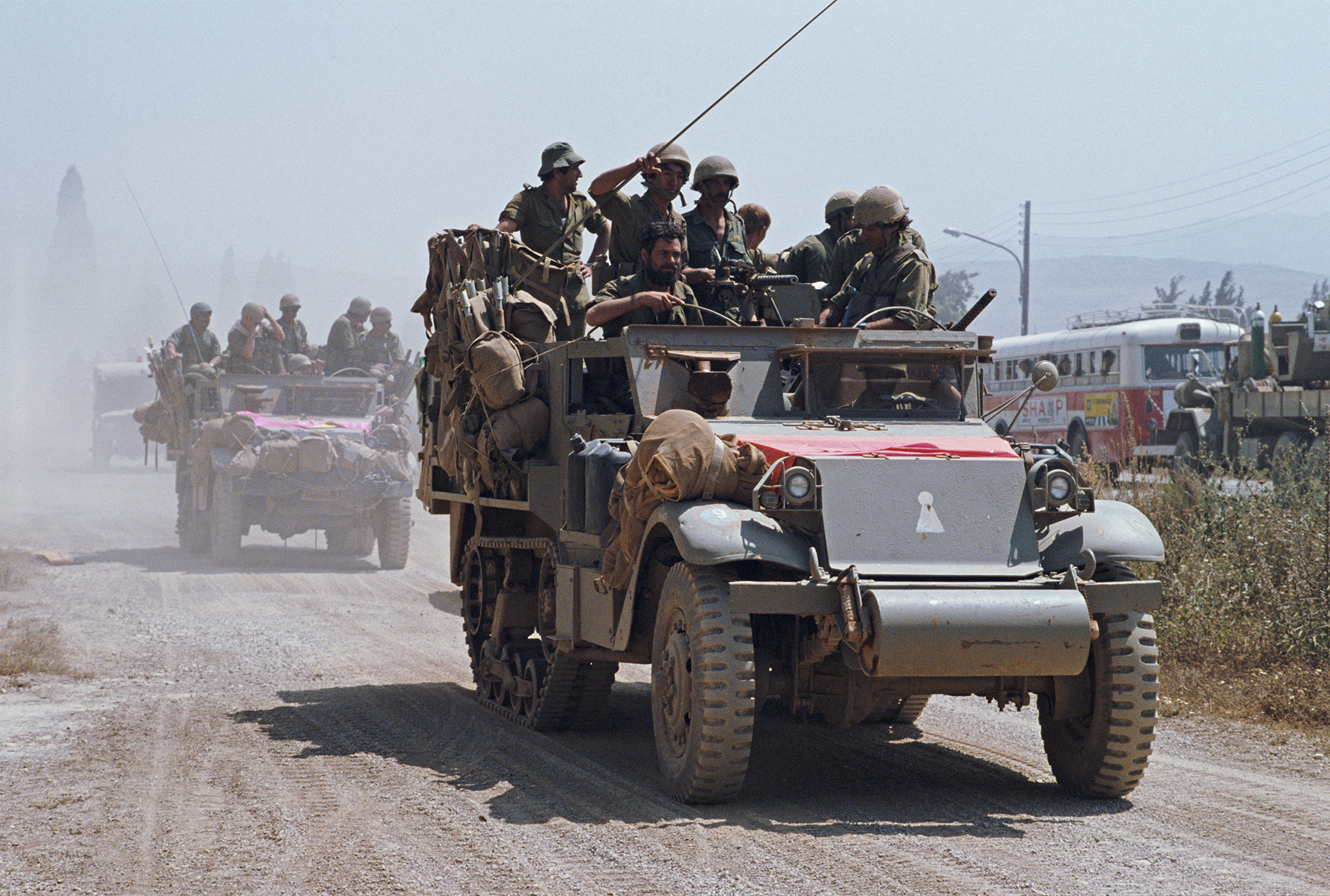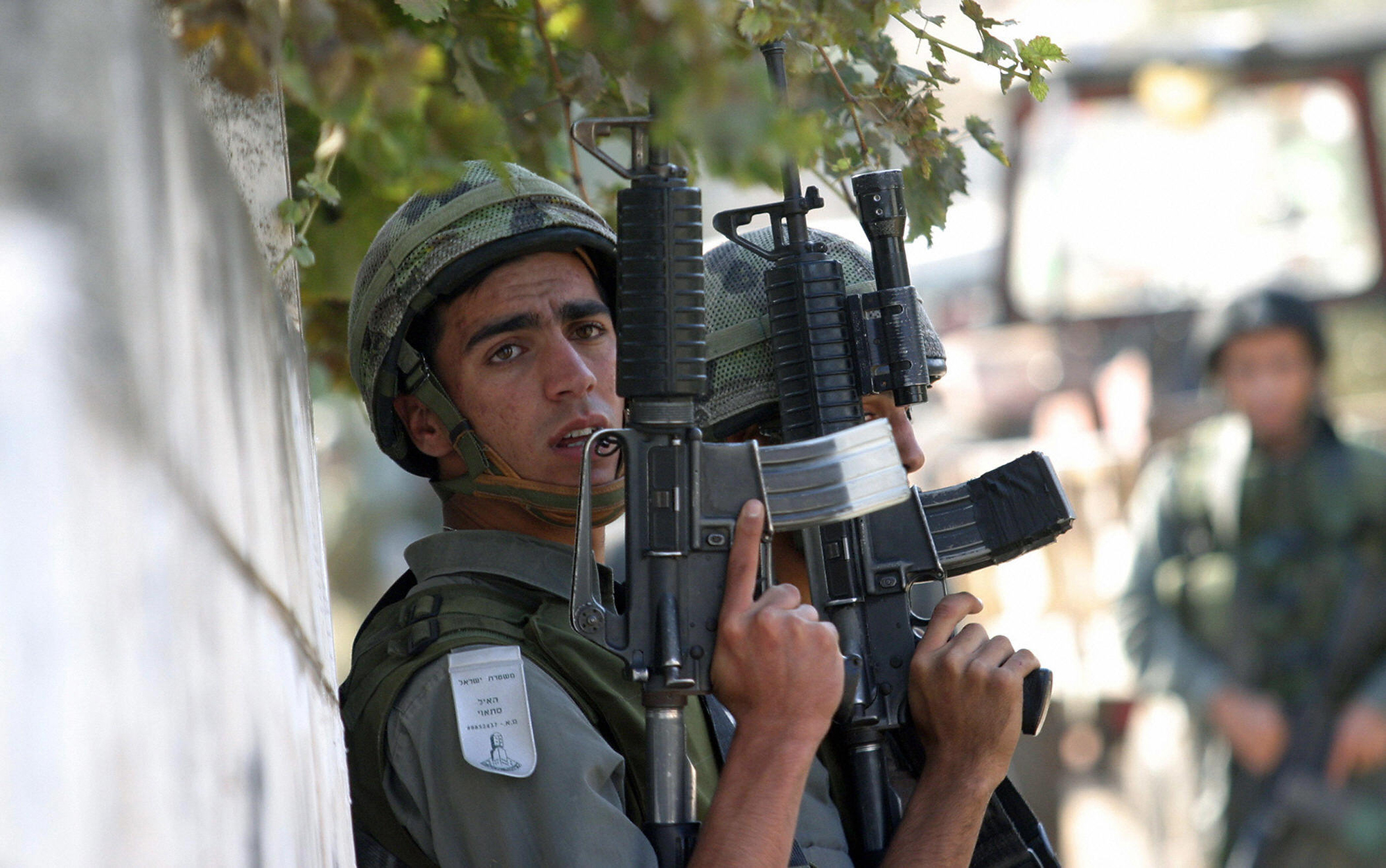Attempt number three: Mistakes Israel made in previous wars in Lebanon
 Israeli military (Photo: Getty Images)
Israeli military (Photo: Getty Images)
Israel has launched its third ground operation in Lebanon in recent decades.
RBC-Ukraine outlines how the previous two wars in Lebanon unfolded and the challenges faced by the Israeli army at that time.
Contents
On the night of October 1, Israel began a ground military operation in southern Lebanon. The operation aims to destroy the infrastructure of the terrorist group Hezbollah, which has been consistently shelling Israeli territory, with these attacks becoming particularly active in recent months.
This is already Israel's third engagement in Lebanon. Although the previous two operations allowed Israel to accomplish certain objectives at the time, they also demonstrated that Israeli leadership can make mistakes. Therefore, drawing lessons from these experiences is crucial for the success of the current operation.
First Lebanon War - Operation Peace for Galilee
In 1975, a civil war broke out in Lebanon. Dozens of ethnic and religious communities began fighting for a redistribution of spheres of influence. Syrian troops were deployed to Lebanon, and the Palestine Liberation Organization (PLO), a terrorist group that fought against Israel under the banner of protecting Palestinian refugees, also actively engaged in the conflict. Over time, the PLO took control of southern Lebanon and, based on this territory, intensified its shelling and terrorist attacks against Israel.
Initially, the response to such actions was limited. The Israel Defense Forces conducted restricted operations and remotely targeted the firing positions from which attacks were launched. Ultimately, in June 1982, a large-scale military operation was initiated, with the primary goal of destroying PLO positions. This was successfully accomplished in a relatively short time, forcing the group's leaders to relocate to far-off Tunisia.

PLO fighters in southern Lebanon in 1982 (photo: Getty Images)
However, the international community condemned the Israeli operation. The UN Security Council unanimously approved Resolution 509, which demanded that Israel immediately withdraw its armed forces from Lebanon's borders. The real pressure, however, began only in September 1982, when militants of the Lebanese Kataeb party (right-wing radical Maronite Christians) allied with Israel organized massacres in the Palestinian refugee camps of Sabra and Shatila. Estimates of the number of people killed vary from 460 to 3,500 civilians. The situation worsened when the Israeli government, led by Menachem Begin and Ariel Sharon, immediately refused to ensure an investigation into this war crime. Within Israel, public opinion also became divided on this issue.
Moreover, Israeli forces in Lebanon suffered continuous casualties. Throughout the war, around 900 soldiers were killed. For Israel, Lebanon was increasingly turning into an analog of Afghanistan for the USSR or Vietnam for the United States.

Israeli army marching in southern Lebanon in 1982 (photo: Getty Images)
In 1985, Israel withdrew from most of the occupied territories, retaining control only over a small security zone along the border until 2000. However, the effort to establish allied forces in southern Lebanon that could rely on broad local support failed. As a result, the Palestine Liberation Organization (PLO) was replaced by the much more dangerous Hezbollah.
The operation in Lebanon also ultimately stalled the peace process with Israel's other Arab neighbors. Shortly before, Israel had signed the Camp David Accords with Egypt, marking the first peace agreement with an Arab state and ensuring peace along its southern borders. In other Arab countries, the Israeli operation was perceived as aggression, putting the peace process with Israel on a long pause.
Second Lebanon War – Operation Just Reward
After the Israeli army's withdrawal from southern Lebanon, a significant portion of the weaponry left behind was seized by Hezbollah militants. This group emerged during the Lebanese civil war, under the patronage of Iran, which had recently experienced an Islamic revolution. Hezbollah regularly shelled Israeli territory, carried out terrorist attacks, and conducted sabotage operations, while the organization's leadership openly declared the need to destroy Israel.
Compared to the first, the Second Lebanon War was shorter, lasting just over a month, and involved fewer troops.
On July 12, 2006, Hezbollah launched several missiles from Lebanese territory across the demarcation line into Israel. At the same time, Hezbollah militants infiltrated Israeli territory and attacked a military patrol.

An Israeli soldier on a combat mission in 2006 (Photo: Getty Images)
The response was decisive. Just two hours later, the Israeli army entered southern Lebanon, and air and artillery strikes began. What followed was a surprise for Israel: Hezbollah employed guerrilla tactics, relying on a network of underground tunnels and bunkers. The Israel Defense Forces (IDF) had to storm one fortified area after another, suffering heavy losses, which was particularly painful for a military and a country that highly values the lives of its soldiers.
Israeli forces achieved the formal objective of the operation, reaching the banks of the Litani River, but retreated just a few days later in accordance with a UN Security Council resolution. By the end of the war, about 120 Israeli soldiers had died, and up to 150 units of various armored vehicles, four helicopters, and one fighter jet had been damaged or destroyed. Hezbollah, in turn, lost around 700 fighters, a significant number of rocket launchers, and other equipment. Indeed, for a time, the shelling of Israel from Lebanon ceased.
However, despite the heavy losses, it was Hezbollah that declared victory, as it inflicted significant casualties on one of the region's best armies. This sentiment was widely echoed in most Arab media, leading to an increase in the political authority of Hezbollah leaders both within Lebanon and in other Arab countries. The flow of funds and weapons to Hezbollah from various sponsors quickly resumed, enhancing its military capabilities.
In Israel, an official investigation was launched into the actions of military and political leadership following the conflict. A commission led by former Supreme Court Justice Eliyahu Winograd determined that the decision to initiate the military operation was made without a detailed action plan.
The commission identified Israeli Prime Minister Ehud Olmert, Defense Minister Amir Peretz, and Chief of Staff Dan Halutz as responsible. The Prime Minister was criticized for making hasty decisions, refusing to listen to the arguments of opponents, and unwillingness to adjust plans in line with developments. The Defense Minister was accused of being unaware of the army's state at the onset of the operation. The Chief of Staff was blamed for not intervening in the decision-making process led by politically inexperienced individuals.
No two situations in history are identical, and any comparisons with previous Israeli ground operations in Lebanon are quite crude. Unlike previous cases, this time Israel effectively paralyzed Hezbollah by destroying its entire leadership. On the other hand, many fighters, especially commanders, now have experience conducting combined arms operations gained during the conflict in Syria. The international community remains divided in its view of Israel's activities. However, as past Israeli operations in Lebanon have shown, winning a war on the battlefield is not enough; it must also be achieved politically and informationally.
It is worth noting that Hezbollah has been intensively shelling Israeli territory since October of last year. In response, Israel has conducted airstrikes against the group's military targets. The ground operation is intended to help eliminate the infrastructure used for the attacks.
As CNN reports, the Israeli army does not plan for a long-term occupation of southern Lebanon or an extended presence of its troops in the country.
Sources: Avi Shlaim "The Iron Wall: Israel and the Arab World," Amos Harel and Avi Issacharoff "34 Days: Israel, Hezbollah, and the War in Lebanon," and Gideon Sa'ar and Ron Tira "Political and Military Contours of the Next Conflict with Hezbollah."

